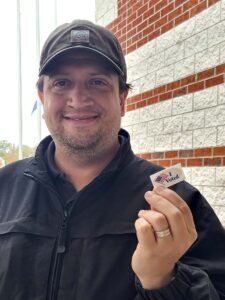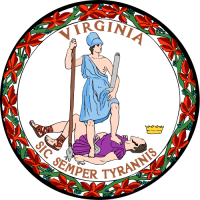Each year, on the “Tuesday next after the first Monday in the month of November,” I go to my local polling place to vote. This year was no different. My lot is cast. Now I wait ’til evening, when the results start to come in.
On Virginians’ ballots this year are the governor, lieutenant governor, state attorney general, members of the House of Delegates, and various local offices and ballot issues. These are important. In some ways, they are more important than the big-tickets presidential and congressional elections that tend to get a lot more attention. So, if you are an eligible voter, go vote.
But first, take some time and do some research. I encourage you to read my endorsements, which explain why I voted the way I did. But read other peoples’ too. Read the candidates’ websites, watch some of their stump speeches (if you can find them), read opinion articles and editorials, and talk to your friends. And don’t pay too much attention to party lines and hyperbolic ads.
Use your head, get informed, and make your own choices.


